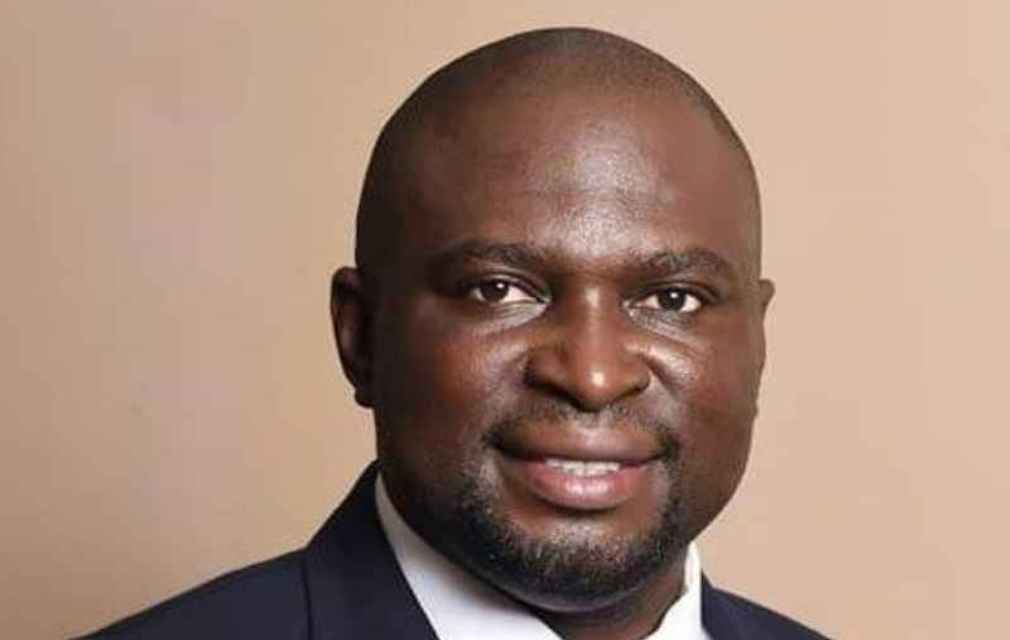Akwa Ibom State post COVID-19: Rt. Hon Emmanuel Ekpenyong’s Economic Advisory Council Bill Deserves Passage into Law

Lawyard is a legal media and services platform that provides…
On the 20th of April 2020, while the world was still gripped in the throes of an aggressive Coronavirus (COVID-19) pandemic, a seismic storm was sweeping across the globe. By 12pm the next day, the world woke up to a news so stunning that many still remain in denial till today: U.S crude oil fell below $0, the first time this had happen in history. The news was enough to send stocks across the world into a free fall.
Oil producing countries like Nigeria were also experiencing drastic reduction in revenues, a situation with debilitating effects on its economy and people.
As an oil-producing State, for Akwa Ibom, the bite of a daunting recession was glaring. It was against this backdrop that the Akwa Ibom State Government, committed to finding a way around a possible recession in May 2020, inaugurated a 20-man Post COVID-19 Economic Re-construction Committee, comprised of stakeholders and priding economic titans such as Prof Akpan Ekpo, Leo Stan Ekeh of Zinnox fame, and Hillary Akpan of NNPC/NAPIMS etc. The Committee was charged with putting up an economic blueprint that will turn the state into an investment and economic hub in Africa given certain post Covid-19 constrictions.
On 9th June 2020, the Committee submitted its report to the Governor. In a 142-page report made up of 9 chapters, the committee amongst other things specifically recommended the establishment of an economic advisory council for the State. According to the report;
“the State needs an Economic Advisory Council to assist in the conceptualization, formulation and implementation of government policies. Such exercise would be evidence-based. It would not only advise government but would also serve as a think tank.”

Seven-months after the Committee made submitted its reports; COVID-19 continues to plague the world with a virulent second wave sweeping across the countries. There are even talks of a third and fourth wave notwithstanding several breakthroughs in vaccine productions. Faced with a bleak economic output, the Chief Whip of the Akwa Ibom State House of Assembly Rt. Hon Emmanuel Ekpenyong established a High Level expert based team charged with putting together workable legal frameworks for an ambitious Post COVID-19 economic reconstruction for Akwa Ibom. Working with his in-house consultants, Rt.Hon Ekpenyong came up with the Akwa Ibom State Economic Advisory Council Bill which has undergone first reading on the floor of the House. This Bill seeks to legitimize one of the recommendations of the Post COVID-19 Economic Re-Construction Committee.
Overview of the Bill
The main thrust of this Bill is aimed at establishing an Economic blueprint for the State to be overseen by the Economic Advisory Council which will act as a permanent economic think-tank for Akwa Ibom State. The thrust of creating an Economic Plan for the State is to provide for stability, sustainability and continuity of economic policies for the overall benefit of the State.
This Bill will help protect well thought out economic policies from policy vicissitude that occasion transition between administrations by giving the economic council legal protection. The Bill also offers assistance to Local Government areas in the State to encourage them adopt similar legislations in carrying out the implementation of the Economic Plan in their respective jurisdictions. Below is a brief breakdown of the contents of the Bill.
Section 1 establishes an economic plan for the State. Section 2 of this Bill sets out the objectives of the Economic plan which are to:
(a) accelerate the economic growth of Akwa Ibom State;
(b) maximize and manage the economic resources of the state for the benefit of the entire state;
(c) diversify the economy of the State;
(d) accelerate the manufacturing and industrial capacity of the State;
(f) increase the capacity of the State to overcome severe economic downturns of national or international dimension.
Section 3 further sets out the scope of the economic plan which is to be implemented throughout the State and based on industry groups:
(a) where the State has competitive and comparative advantage to maximize for rapid economic gains;
(b) which can contribute substantially to the State’s Gross Domestic Product.
(3) The economic groups contemplated by this Bill include:
(a) agribusiness and agro allied;
(b) ICT services;
(c) solid minerals and metals;
(d) oil and gas related industry; and
(e) construction, manufacturing and services.
Section 4 of the Bill establishes the Governor of the State as the approving authority for the economic plan.
Section 5 establishes the Economic Advisory Council. The Commissioner in charge of Economic Planning is charged with providing the secretariat for the meetings of the Advisory Council.
Section 6 spells out the functions of the Council to include-
(a) strengthen the coordination mechanism with the private sector by bringing into the Economic Plan the private sector private perspective;
(b) deliberate on the quarterly progress of the Economic Plan and provide feedback and advice on ways of maximizing the Economic Plan’s impact;
(c) provide input into the Economic Plan work plan for each successive quarter;
(d) highlight areas that the private sector requires priority to be accorded to, in order to bring into implementation, programmes of the Economic Plan international perspectives based on the experiences of economically advanced countries;
(e) share information on potential milestone investments, with suggestions on how best the Government and the implementation of the Economic Plan can facilitate investments; and
(f) provide the necessary bridge to link the State, the private sector, the Federal Government and international investors to achieve sustainable economic reform and industrialization.
Section 7 provides for the establishment and maintenance of a comprehensive investors and programme database which shall be maintained by the Council to lay solid foundation for policy consistency, coherence and investment process sustainability.
For ease of implementation of the Economic Plan, Section 8 establishes Economic Plan Units in relevant Ministries, Departments and Agencies which are charged with responsibilities for execution of plans, programmes or activities under the Economic Plan in their respective spheres of operations. The functions of these units are as follows:
(a) carry out such plans, programmes and activities contained in the Economic Plan and any update to the relevant Ministry, Department or Agency;
(a) liaise with the Advisory Council on operational issues concerning the implementation of the Economic Plan in the relevant Ministry, Department and agency;
(b) furnish information to the Advisory Council in such form and at such intervals and details as may be required on the implementation of the Economic Plan.
Section 9 charges Relevant Ministries, Department and agencies shall ensure that the annual financial requirements for the implementation of the Economic Plan are provided for in the annual budget for each financial year throughout the duration of the Economic Plan.
To address the issue of funding of the Economic Plan, Section 10 establishes a Fund into which shall be paid-
(a) the annual budgetary allocation made available by the House of Assembly for the purpose of implementing plans and programmes under the Economic Plan;
(b) such moneys as may be provided to the Advisory Council by the State Government;
(c) gifts, testamentary dispositions or donations, provided that the terms and conditions attached to the gifts, testamentary dispositions or donations are not inconsistent with the attainment of the objectives of this Law; and
(d) such other sum of moneys as may accrue to the Fund, from time to time.
The Fund established by Section 10 is to be applied towards-
(a) expenditures incurred in the implementation of the Economic Plan;
(b) reasonable travelling expenses and allowances of the Advisory Council, Units and Committees referred to under this Law; and
(c) remuneration and allowance of staff, experts and consultants appointed for the Economic Plan.
To accelerate economic development across the State, Section 11 of the Bill encourages Local Government Areas in the State to implement miniature versions of the Economic State Plan according to their distinct economic needs.
Taking into consideration the dynamic nature of economic factors, Section 12 of the Bill allows for a periodic review of the Economic Plan after the expiration of its original implementation period which is Seven (7) years.
Section 13 places an obligation on implementing authorities to adhere to the State Economic Plan as well as to ensure that their laws, rules and regulations are regularly reviewed to bring it in substantial conformity with the provisions of this Law, for the smooth and effective implementation of the Economic Plan.
Section 14 empowers the Governor as the approving authority on the recommendations of the Advisory Council to provide support to local government areas in the State that:
(a) adopt arrangements similar to the arrangements contained in the Economic Plans;
(b) pass legislations in substantial conformity with the provisions of this Law, with such technical support and other assistance for the rapid execution of the Economic Plan in the local governments.
Section 15 gives the Commissioner in charge of Economic planning the power to make such regulations as are necessary for the efficient and effective implementation of the Economic Plan.
Section 16 contains the definition of key words in the Bill while Section 17 provides for the Short title of the Bill.
The idea embodied in this Bill is nothing new in Nigeria. There are ample precedents for the establishment of economic advisory councils both at the National and State levels. Aside from the National Economic Advisory Council set up by President Buhari, States with economic foresights have established Councils or committees such as the one contemplated by this Bill which include:
(a) Ogun State Business Advisory Council.
(b) Rivers state Economic Advisory Council.
(c) Kaduna State Economic Development Council.
(d) Lagos State Economic Advisory Committee.
(e) Enugu State Economic Advisory Committee.
(f) Abia State Post COVID-19 Economic Advisory Council.
(g) Imo State Financial Advisory Committee.
(h) Niger State Economic Advisory Committee.
However, the highpoint of the Akwa Ibom economic advisory council as proposed by this Bill is that it seeks to be the first of such council in the Country to be established by law which will ensure that it transcends any administration in the State, thereby giving our Economic Plan the much needed stability and protection from political influence.
Conclusion
The Chief Whip’s Bill could not have come at a better time than now when a resurging COVID-19 continues to exert negative pressure on the fragile economy of the State. The State is in dire need of a not just sound but practicable economic blueprint that will lead us away from certain economic upheavals, and far into the economic El Dorado we have clamoured for since creation. It falls on every stakeholder to rally support for the Economic Advisory Council Bill as it makes its way to becoming Law. A stitch in time saves nine but the Economic Advisory Council Bill, is a Bill in time which will serve and save us all.
About the Author
Anemuyem Akpan is a lawyer and Managing Partner of ANEMPIRE STRATAGEMS, an Uyo-based strategic consulting firm with a record of providing sterling services to both the executive and legislative arms of government. With practice presence in Abuja, Bayelsa, Edo and Delta States, the firm has won credit over the years as a one-stop shop for government services.
Contact details: 08063624048, stratagenmanem@gmail.comhttp://www.anemstratagem.wordpress.com
Lawyard is a legal media and services platform that provides enlightenment and access to legal services to members of the public (individuals and businesses) while also availing lawyers of needed information on new trends and resources in various areas of practice.














